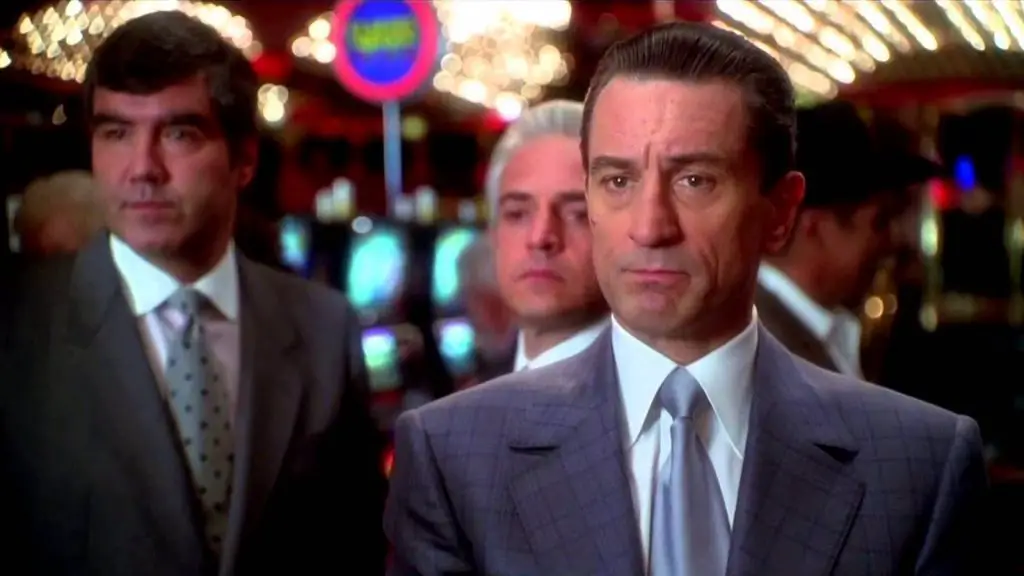
The first thing they teach you in any writing class is, of course, write what you know. And it stands to reason that the same is true for the independent filmmaker. With inevitably limited resources, the best course of action is always to work with the materials around you. The only question is, who’s going to want to see your knowledgeable, if insular, film. Douglas Underdahl’s “Film School Confidential” is the kind of smart, but limited little film that will satisfy its core audience, but probably won’t go much further.
It isn’t as if Underdahl’s film is about an Alaskan albino who moves to New York City to study Jewish mysticism only to discover a latent gift for badminton. Then he’d have a truly difficult time finding his audience. Instead, Underdahl, who has taught at a variety of film schools and helped design film equipment, made his debut feature about a group of friends at film school. “Film School Confidential” follows five students through a year of classes — it’s a year of life lessons, nervous first steps, and minor disasters. And it’s no surprise that Underdahl’s knowledge of the tone of film school is pretty flawless. He understands the student filmmaking process, the circular cinema-obsessed conversations, and the pretentious first films and he understands the harsh criticisms of ignorant peers and how that condemnation can leave a fragile artist’s ego scarred. Underdahl has also assembled a strong cast of unknown actors who deliver natural performances that genuinely work. The things that Underdahl gets right are so important that it’s easy to forget that the film itself is satisfying, but not enriching. It’s the work of a filmmaker in control of the world of his movie, but uninterested in such minor storytelling details as original plot developments and consistent characters.
“Film School Confidential”’s gang of five makes very little sense, if you think about it. Underdahl’s strategy is to create an excuse for five disparate stereotypes to live together and interact and he doesn’t really succeed. For some reason, Sara (Stephanie Paul) has decided to move back into campus housing during her senior year. A battle-weary and irony-heavy film school vet, Sara somehow ends up sharing a room with Marta (Christi Kelsey), a freshman English major who appears to be the most innocent girl in the world. In another dorm room we find two more seniors, goateed cinematographer Greg (Stephen Heskett) and drugged-up experimentalist Mark (Ethan Aronoff) living with a transfer sophomore Sal (Chuck Worthington), who’s new to film school. So the stage is set for the two innocents, Sal and Marta, to learn about the reality of film school, but also, perhaps, to spread their enthusiasm to their older roommates.
Time in this film passes erratically and there’s very little ebb and flow to their school year. Sara spends the whole time working on a hilariously pretentious art film. Sal makes one short film about a child’s first day on the school bus and gets so discouraged by the response of his peers that he drops out. Greg and Marta make a provocative film about child abuse starring dolls. And Greg does drugs. When Underdahl’s script (and plot convention) requires a change in a character’s core personality, it just happens, with little regard to logic or progression. The result is that despite the fine performances none of the characters seem real, regardless of how well Underdahl knows his setting.
Stephanie Paul, as Sara, gives the film’s best performance even though she’s stuck with Underdahl’s most predictable character. She’s marvelous at wearing away the hard edges of her character, though she’s much more fun as a bitch than as a reformed saint. As a tyrant on the set of her silly film, Paul excels, but when Underdahl’s script requires Sarato realize the error of her ways at the end, the character’s integrity feels compromised. Heskett, Kelsey, and Worthington all do casual and believable work creating appealing, if simplistic characters. Only Aronoff strains credulity, resorting to too many tepidly recycled pothead cliches.
Underdahl’s script is full of sharp dialogue and knowingly funny scenes. He can make jokes about the pressures of a first film assignment that requires you to make a film about light, texture, knowing, and meaning and he knows just how awful student films usually can be. It’s a pity he wrote the story on autopilot.
As a director, Underdahl can’t entirely decide whether he’s making a Hollywood film, a film school film, or post modern film. The smooth camera moves are sometimes at odds with a use of jump cuts that’s erratic at best. The interspersing of knowing title cards doesn’t make the blandness of the plot more excusable.
“Film School Confidential” works well enough to develop a base of good faith with some of the most important allies an independent film can have. Critics and fellow filmmakers will recognize that Underdahl knows his stuff and festival audiences will appreciate that the film looks professional. But will anybody outside the community of cinefiles care? I’m not sure. Beyond getting gratuitous topless scenes from his two actresses, Underdahl does nothing to help this film appeal to a larger audience. Underdahl wrote what he knows, but his film is mostly preaching to the choir.
